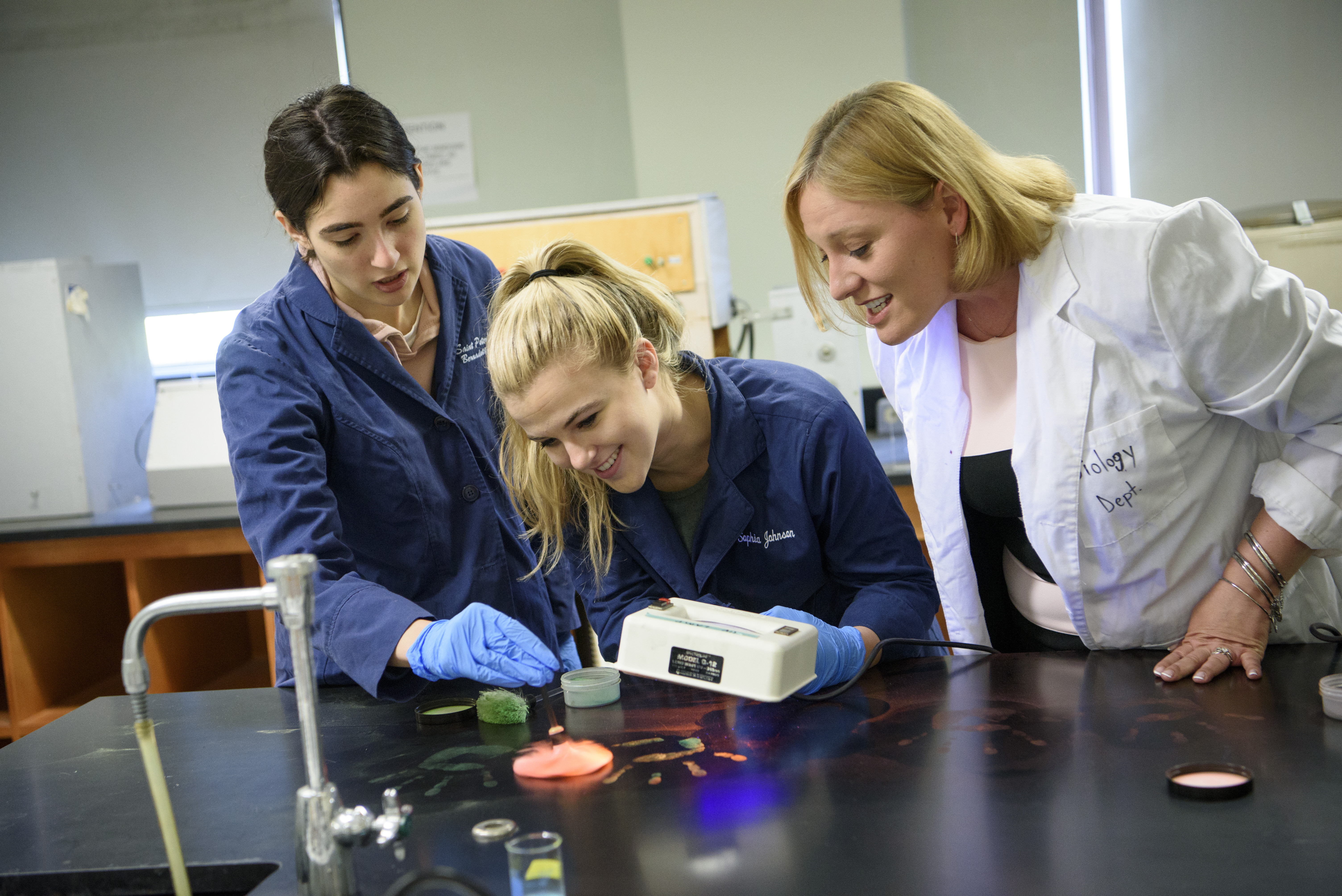What is Biology?
Biology is the scientific study of life and living organisms. It encompasses a wide range of disciplines, from molecular biology and genetics to ecology and evolution.
As a Biology student at Saint Peter’s University, you will seek to learn the answers to questions such as:
- How do cells function and communicate with each other?
- What are the mechanisms of genetic inheritance?
- How do species evolve over time?
What makes biology at Saint Peter’s University different?
Saint Peter’s University offers a strong Biology program with a variety of specializations, including forensic science, pre-medicine, and pre-veterinary medicine.
As a Peacock in the Biology program, you will benefit from state-of-the-art facilities, including a new science building with wet and dry labs, a greenhouse, and a tissue culture lab. Additionally, you have the opportunity to engage in research projects with faculty members.
Saint Peter’s University has a strong track record of success for Biology graduates. Many graduates go on to pursue successful careers in healthcare, research, education, and other fields.
Peacocks studying Biology at Saint Peter’s University can take courses such as:
- Cell and Molecular Biology
- Genetics
- Principles of Anatomy and Physiology
- Ecology
- Immunology
- Botany
What can I do with a biology degree?
A Biology degree from Saint Peter’s University will prepare you for a variety of careers in healthcare, research, education, and other fields. You will have the skills necessary to be successful in whichever career path best meets your interests.
Peacocks with a Biology degree can pursue successful careers such as:
- Physician
- Research Scientist
- Genetic Counselor
- Conservation Biologist
- Regulatory Affairs Specialist
- Public Health Officer
- Forensic DNA Analyst
- Computational Biologist
- Professor
After earning a Biology degree from Saint Peter’s University, you will be equipped to follow the right path and find success in a wide range of fields.
Concentration in Forensic Science
The concentration in Forensic Science allows students to obtain a science-oriented degree that is supported by professional courses in forensic science and criminal justice within the context of a liberal arts education. The field of forensic science is recognized as a respected discipline among scientists and others in criminal justice, chemistry, biology and physics. This concentration, offered through the Department of Biology, is built upon the foundation of the University’s well-established programs in biology, chemistry, criminal justice and psychology.

Special learning opportunities
Research: Due to the diverse interests of the faculty (all of whom hold Ph.D.s) individual opportunities for study and research are available in microbiology, physiology, developmental biology, invertebrate zoology, parasitology, genetics, cell and molecular biology, plant biology and ecology.
Pre-Professional Programs: Students interested in healthcare fields (such as pre-medicine, pre-veterinary and pre-dental) are encouraged to major in one of the natural sciences which include coursework in chemistry, biology and physics required for admission to those professional schools. The Health Careers Advisor, Dr. Katherine Wydner, guides students in planning for health-related careers.
Pre-Med Program: Through affiliations with Rutgers University, Saint Peter’s offers joint degree programs for highly motivated students with strong academic records. These accelerated programs lead to degrees in medicine, dentistry, pharmacy, physical therapy, and medical laboratory science. Our newest partnership is with the Ross University School of Medicine (RUSM). This partnership has created an educational pathway to study medicine at RUSM and qualified students may receive a scholarship covering tuition for their first semester.
The Transformative Experiences (TREX) Program: (NSF #1832464) is an NSF supported opportunity for students in STEM majors (Biology, Biochemistry, Biotechnology, Chemistry, Physics, and Mathematics) to engage in a paid STEM internship experience that also counts for academic credit.
Choose elective courses to support your career goals
Perhaps you’d like to work in medicine? Or maybe the exciting field of medical laboratory science? Or do you gravitate toward forensic science?
Whatever your interest you can choose electives and special research projects to provide the in-depth learning experience needed for your career, professional and graduate studies, and advanced research.
